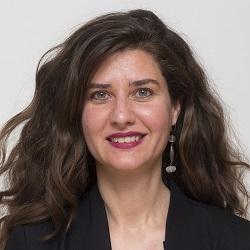European Economic
and Social Committee
Gospodarka o obiegu zamkniętym
Przejście na gospodarkę o obiegu zamkniętym jako rozwiązanie służące walce z kryzysem klimatycznym i ochronie naszej planety to jeden z priorytetów EKES-u. Jest to wielka szansa dla społeczeństwa obywatelskiego, które może przyczynić się do:
- podniesienia konkurencyjności europejskiego przemysłu,
- promowania zrównoważonego rozwoju gospodarczego,
- tworzenia nowych miejsc pracy.
Model produkcji i konsumpcji, który nadal dominuje w naszej gospodarce, prowadzi nie tylko do marnotrawienia zasobów, ale również osłabia walkę ze zmianą klimatu. W przeciwieństwie do gospodarki linearnej gospodarka o obiegu zamkniętym jest koncepcją regeneracyjną i naprawczą, która koncentruje się na tworzeniu i zatrzymywaniu wartości gospodarczej. Gospodarka o obiegu zamkniętym stawia czoła globalnym wyzwaniom środowiskowym, takim jak zmiana klimatu, utrata różnorodności biologicznej i zanieczyszczenie, a zarazem przynosi korzyści gospodarcze.
Dobra wiadomość jest taka, że przejście na gospodarkę o obiegu zamkniętym już dokonuje się w praktyce. Zainteresowane podmioty reprezentujące społeczeństwo obywatelskie, w tym przedsiębiorstwa, związki zawodowe, środowisko akademickie i badawcze, organizacje młodzieżowe, a także organizacje pozarządowe i inne zainteresowane grupy, opracowują i wdrażają wiele inicjatyw na rzecz gospodarki o obiegu zamkniętym na szczeblu lokalnym i regionalnym. Promując rozwiązania oparte na obiegu zamkniętym i przywództwo odpowiednich zainteresowanych stron, możemy najlepiej wykorzystać szansę Europy na szybsze przejście na ten nowy model.
Temu służy europejska platforma zainteresowanych stron gospodarki o obiegu zamkniętym, wspólna inicjatywa EKES-u i Komisji Europejskiej. Utworzona w 2017 r. platforma ma połączyć społeczność gospodarki o obiegu zamkniętym w Europie. Działanie platformy jest nastawione na zainteresowane podmioty i promuje przejście Europy na gospodarkę o obiegu zamkniętym poprzez wspieranie dialogu, dzielenie się wiedzą i wymianę najlepszych praktyk.


